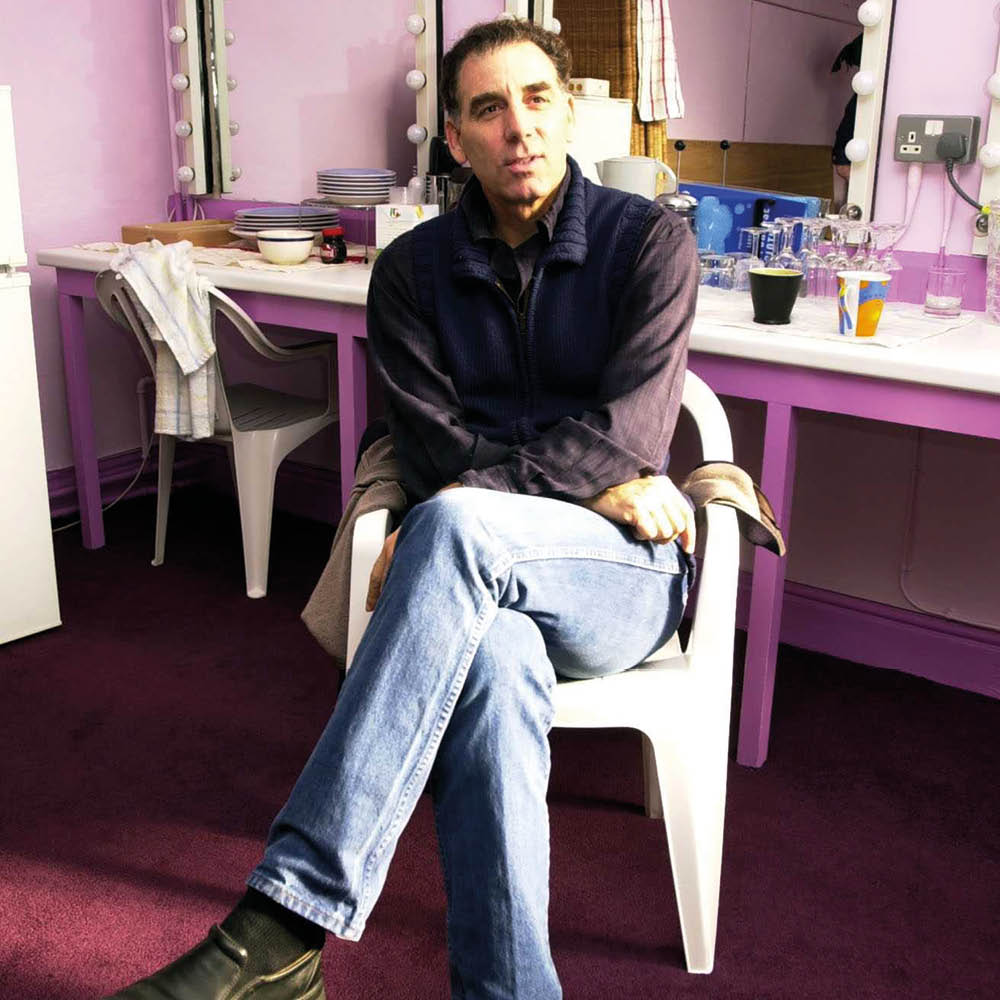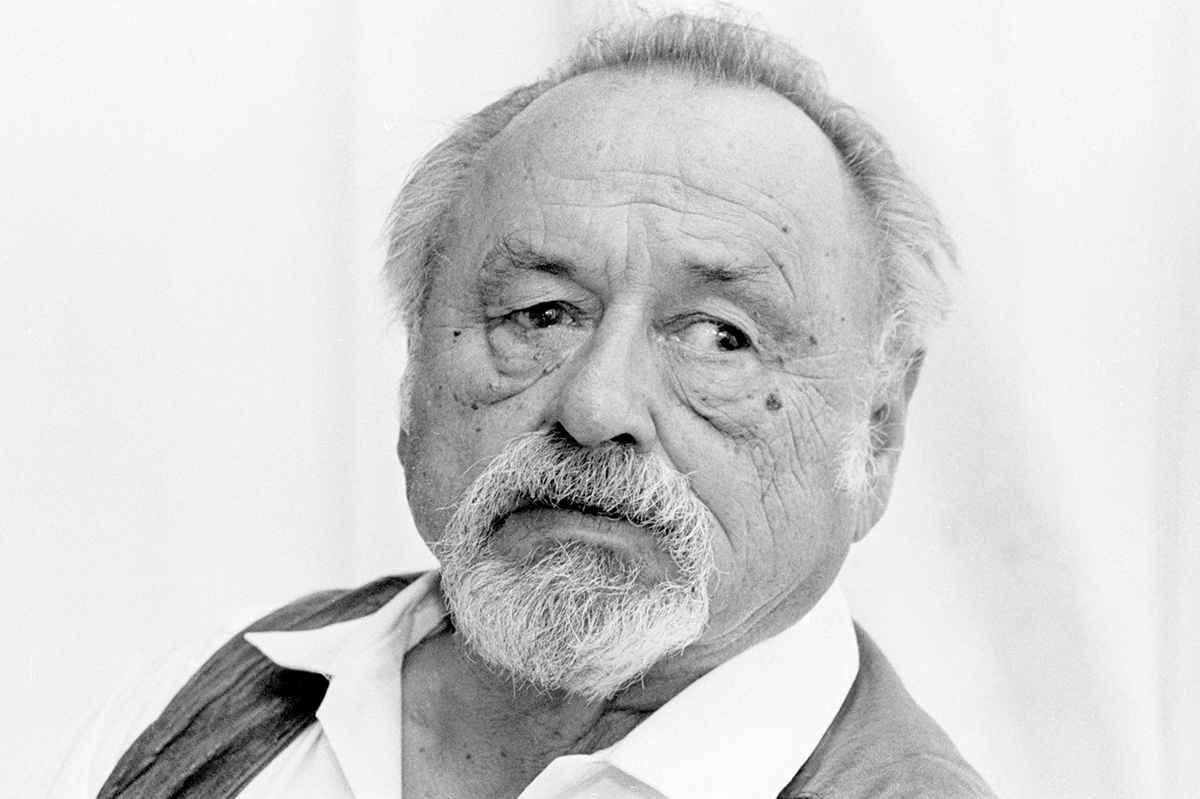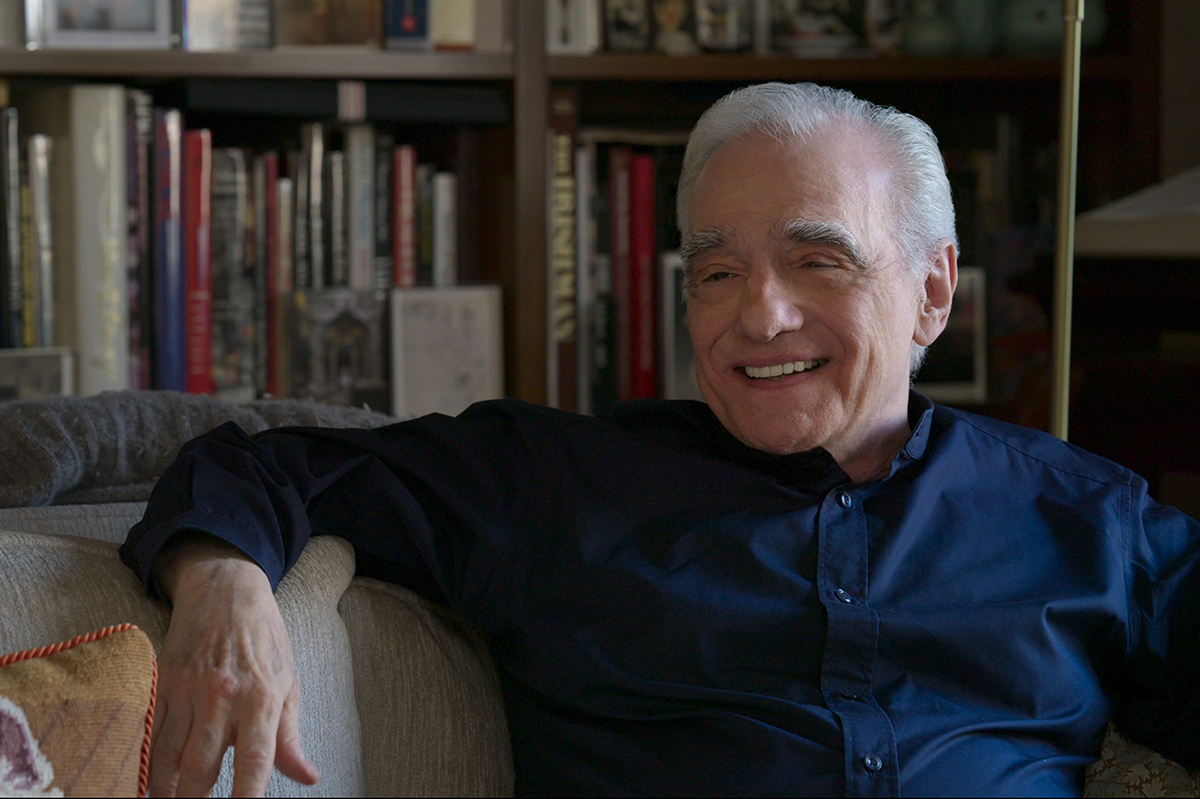An unusual disclaimer greets the reader on the title page of this memoir of an actor chiefly known for starring as the lovable goofball Cosmo Kramer on the hit TV sitcom Seinfeld. “Neither the US Army nor any other component of the Department of Defense has approved, endorsed, or authorized this book,” it notes. But in the event the Pentagon probably needn’t have worried. Drafted into the army in 1970, the actor in question, Michael Richards, seems to have avoided any Sergeant Bilko-like shenanigans and instead separated from the service with a heightened appreciation for the punctuality, discipline and meticulous preparation that characterized his later career. The three chapters he devotes to his time in uniform are representative of a book that’s detailed, ponderous, a bit obsessive and notably free of belly laughs.
Even before Uncle Sam came calling, Richards’s life was very much in the comedy-out-of-tragedy tradition. “Dickensian” might be going too far to describe the author’s upbringing in and around 1950s Los Angeles, but it’s not, perhaps, entirely the wrong direction. He was told his father had died in World War Two when Michael was just two, and his mother, a medical records librarian, never remarried. There was talk of putting the boy up for adoption in Mexico, but in the end his mother took him home, where he lived for a time with her and her parents. Then his grandfather died, and his grandmother slipped into madness.
By then a young teenager, Richards began questioning his mother about his father. How could he have died fighting in a war which ended in 1945 when he, Michael, was born in 1949? Richards devotes several pages of his book to solving the mystery, eventually revealing that his mother had been sexually assaulted by a man she barely knew, and her son was the result. Nothing about the family was quite what it seemed; even the name Richards was plucked from the phone book. “Starting at a very young age, my imagination was the key to my survival,” the author writes, unsurprisingly.
The result is a bold and at least partially successful attempt to stray from the familiar world of the comedic memoir in search of something different. Alongside one or two backstage glimpses into Seinfeld and the rest, we’re treated to lengthy ruminations on the high-wire act of performing before live and often unruly audiences (more on that later), as well as to that strange mixture of ego and insecurity that seems to animate our public entertainers.
There’s also a good deal about Richards’s occasionally dotty views on the meaning of life, along with a generous selection of his own photographs with captions such as “We can see each other through the physical world, and though it all passes away, I hold this circle within me, spiritually — it’s eternal, on-going, so present, so alive within me.” At another point the author informs us: “The first draft of this manuscript was well over 600 pages [and] included a 72-page appendix going much deeper into a spiritual ethos that I live by,” though it appears an editor ultimately intervened on the reader’s behalf.
The book isn’t entirely humor-free, even so, and I enjoyed the moment where a jet-lagged Richards overdoses on super-caffeinated Cuban coffee before attempting to interact with a Versace-clad Don Johnson on a 1980s episode of Miami Vice, later collapsing in a gibbering heap to be wheeled away by paramedics. That concluded the shooting schedule for the day, with an unimpressed Johnson left shouting down the phone at his agent. Or there’s the protracted scene where Richards’s Los Angeles hotel somehow loses his luggage, forcing him to attend a star-studded gala dinner dressed in a white terrycloth bathrobe and a pair of black socks and dress shoes. Part of the poignancy of the incident is that everyone assumes it’s another wacky Kramer moment and reacts accordingly, with gales of helpless laughter, whereas Richards himself is inwardly seething with rage. It somehow reminds me of what the late Peter Cook used to say, that anyone with a reputation for being funny needs only to say “pass the salt” to reduce everyone else at the dinner table to hysterics.
By and large, though, this is a book that can be safely read without the danger of any public explosion of mirth. “What’s my problem?” Richards inquires at one point, in a characteristic moment of introspection, recalling his experience of walking the red carpet at the Emmys. His candid response: “I’m an introvert and I’m standing in one of the most extroverted events in the world! I can’t say what I mean. I’m tongue-tied. I can’t have fun.” Or consider Richards’s decompression technique after taping another fun-filled episode of Seinfeld. While the rest of the cast invariably drove off to celebrate at a local restaurant, we learn, he “went home to my swimming pool, sitting in a patio chair secured at the bottom of the deep end, a diver’s regulator in my mouth, breathing through [an air] tank.” In that arresting sensory-deprivation image, both comic and faintly disturbing, we can surely glimpse the essence of the man at the heart of this book.
Of Seinfeld itself, we learn only that the other three principal cast members were seasoned professionals who were a joy to work with, and that the show’s co-creator Larry David is a misanthropic comic genius, none of which is exactly a newsflash. There are some potted episode summaries, and the confession that Richards was one of the countless fans of the show left faintly dissatisfied by its 1998 finale. “The episode is a huge endeavor, and from the start I don’t feel right,” he writes, recalling his mood at the time. When it was finally all over the rest of the cast and crew stayed up partying all night, but “I’m long gone. I slipped out the back,” presumably to unwind in that chair at the bottom of his pool.
After Seinfeld, with a certain inevitability, there was The Michael Richards Show. The way it’s described here stands as a parable of Hollywood vanity and self-obsession. Richards played a bumbling detective — an awkward hybrid of the Kramer character and Peter Falk’s Lt. Colombo — who somehow always ends up getting the job done. A ratings disaster, the sadly misbegotten exercise was canceled after only eight episodes, the first iteration of the so-called Seinfeld curse that later beset other cast members. Here’s Richards describing the whole sorry experience:
By [the end] the show is so crappy, the ratings so dismal, the critics so bloodthirsty that I break down in a rage at a writers meeting. Someone is debating whether a countertop should be orange or gray. I’M DEAD HERE AND YOU’RE DISCUSSING THE COLOR OF TABLETOPS! I’m shaking. I’m coming apart. “But it’s not funny! I’m not funny! I’m dead here!” Everyone just stares at me. They know it’s true.
Then came Richards’s infamous N-word meltdown in response to an African-American heckler of his stand-up act one dark night in Los Angeles in 2006. “He went low and I went even lower,” Richards writes of the incident. “We both ended up at the bottom of the barrel.” That would be putting it mildly. Richards takes responsibility for his stream of racial slurs, sort of, but ultimately sees it all as part of the process of his torturous personal growth. “Anger appears to get the best of me, but what is the best of me that rises out of anger?” he muses. And then there’s this:
I see where my work begins… again and again, like the seasons round and round, always of the light and dark. There is the sharp pointy world below, or the thorns of the moral world. Out of this, I head for the light to bloom through the heart.
Entrances and Exits is rather that sort of book. Lest it not already be clear, Michael Richards is a very different character from his alter ego Cosmo Kramer. Of course, a degree of pretense isn’t unusual in show business, but in this case the gap between the real-life actor and the part he plays on screen isn’t just wide; it’s yawning. Richards makes a virtue of this fact, rejecting the lure of the conventional laugh-out-loud comedic memoir. Instead, we have an introspective, occasionally drily humorous, often merely arid study that examines the complicated relationship between a comic’s inner rage and his public persona. Anyone hoping for an insider’s laugh-a-minute account of the golden days of Seinfeld will be disappointed to learn that this is as much a self-empowerment exercise by a wandering spirit as anything else; anyone looking for insight into the whole process of self-projection will not.
Perhaps it’s simply fairest to say that Richards is not a natural autobiographer. His disregard for dates and chronology can confuse the reader, and on top of this the book lacks an index. He narrates in a kind of present-tense singsong which, disconcertingly, gives equal weight to events great and small; deaths and divorces roll along with minute observations on the physical appearance of things, particularly after in later life the author discovers a passion for photography. Above all, Entrances and Exits shows a clever, energetic, dissatisfied, self-critical mind at work. That’s the good news. The bad news is that again and again Richards veers off to indulge in yet more of the sort of anguished philosophical longueurs the general reader will find hard going, but that the millions of people searching for themselves in one form of therapy or another may well identify with. In that sense, a whole society wrote this curious book, not one man.
This article was originally published in The Spectator’s October 2024 World edition.























Leave a Reply